#安国
Explore tagged Tumblr posts
Text

おにぎり担当
126 notes
·
View notes
Text




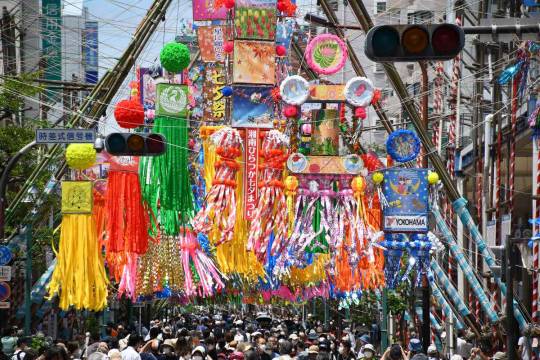
Sean bienvenidos japonistasarqueológicos, una nueva entrega en esta ocasión hablaremos del Tanabata una vez dicho esto pónganse cómodos que empezamos. - ¿Qué es el tanabata?¿Cuándo se celebra?¿Cuál es su origen?El tanabata, surge en China en la dinastía Han que posteriormente llegará a Japón durante el período Nara (710 d.C.- 794 d.C.) a través de la nobleza ,pero no fue hasta el período Edo (1600-1868) que se hizo popular. Esto lo podemos ver en el anime como es el caso de Doraemon (ドラえもん), pero hay montones de animes que tratan esta temática una película que trata estos temas podrían ser: Amor de Gata, Kimi no Nawa, Kimetsu no Yaiba podría hacer una lista que nunca acabaria de la cantidad de anime que hay que trata el Tanabata. ¿Qué es el tanabata? Cuenta la leyenda de Orihime y Hikoboshi que solo se pueden ver la séptima luna del séptimo mes, se crea un puente que les permite cruzar y estar juntos ¿Cuándo se celebra? Se celebra el 7 de julio y lo más característico de esta festividad son los fuegos artificiales y en Tokyo por ejemplo: el templo Zojoji, pero cualquier templo lo podréis apreciar muy bien. tanzaku ¿En qué consiste? Se coloca un trozo de papel con tu deseo y se colocan en árboles de bambú. Para terminar me gustaría mencionar que hay una constelación que representa esta maravillosa historia. - Espero que os haya gustado y nos vemos en próximas publicaciones que pasen una buena semana. - ようこそ、日本の考古学者たちへ。今回は七夕についてお話します。 - 七夕とは何か、いつ祝うのか、その起源は? 七夕は中国の漢の時代に始まり、奈良時代に貴族を通じて日本に伝わった。 ドラえもんなどのアニメに見られるが、このテーマを扱ったアニメはたくさんある:七夕を扱ったアニメは枚挙にいとまがない。織姫と彦星は七夕の日にしか会えないという伝説がある。 いつ祝うの?月7日に行われます。このお祭りの最大の特徴は花火で、東京では増上寺が有名ですが、どこのお寺でもよく鑑賞できます。 短冊 短冊とはどんなものですか?願い事を書いた紙を竹に貼る。最後に、この素晴らしい物語を象徴する星座があることをお伝えしたい。 - それでは、また次の記事でお会いしましょう。
Welcome to the Japanese archaeologists, this time we are going to talk about Tanabata, so make yourselves comfortable and let's get started. - What is tanabata, when is it celebrated, what is its origin? Tanabata, which originated in China in the Han dynasty, later came to Japan during the Nara period (710 AD - 794 AD) through the nobility, but it was not until the Edo period (1600-1868) that it became popular. This can be seen in anime such as Doraemon (ドラえもん), but there are lots of anime that deal with this theme, a movie that deals with these themes could be: Love of Cat, Kimi no Nawa, Kimetsu no Yaiba I could make a list that would never end of the amount of anime out there that deals with Tanabata. what is tanabata? Legend has it that Orihime and Hikoboshi can only see each other on the seventh moon of the seventh month, a bridge is created that allows them to cross and be together. When is it celebrated? It is celebrated on the 7th of July and the most characteristic of this festivity are the fireworks and in Tokyo for example: the Zojoji temple, but you can appreciate it very well in any temple. tanzaku What does it consist of? You put a piece of paper with your wish on it and place it on bamboo trees. Finally, I would like to mention that there is a constellation that represents this wonderful story. - I hope you liked it and see you in the next posts have a nice week.
#日本#中国#アニメ#オタカス#日本人#平安#ディナスティアハン#時代#天文#星座#伝説#伝統#織姫#彦星#ドラえもん#アモルデガタ#君縄#金津乃矢場#-#japan#china#anime#otacus#japanese#heian#dinastiahan#period#astronomy#constellations#history
79 notes
·
View notes
Text


韓国出張(4泊5日)…無事に仕事も終わったし、さて日本に帰ろっと!(。•̀ᴗ-)✧
朝、昼、夜と毎日食べ過ぎ?体重が3kgは増えたかと…
「무엇을 먹고 싶습니까? (何が食べたいですか?)」と行く場所行く場所で聞かれ、遠慮せず答える自分が悪いのかとも思います。何を食べても美味しいし!(^~^;)
チャミスル(韓国焼酎)のワンショット飲みで、毎晩KO状態でした⤵⤵⤵
来週の京都→大阪の出張も頑張ろっと!
20241213
32 notes
·
View notes
Text




令和六年、日本🇯🇵を護るのは日本国民の仕事です
105 notes
·
View notes
Text
🎉Franky: The Unsung Hero of Spy x Family 🕵️♂️💥
Franky Franklin seemed like the goofy, lighthearted informant in Spy x Family, but Chapter 105 shows how much rigorous training he underwent. Besides the humor and awkward moments, Franky is a man who plays many roles—some light, some heavy, all vital to the mission and to those around him.
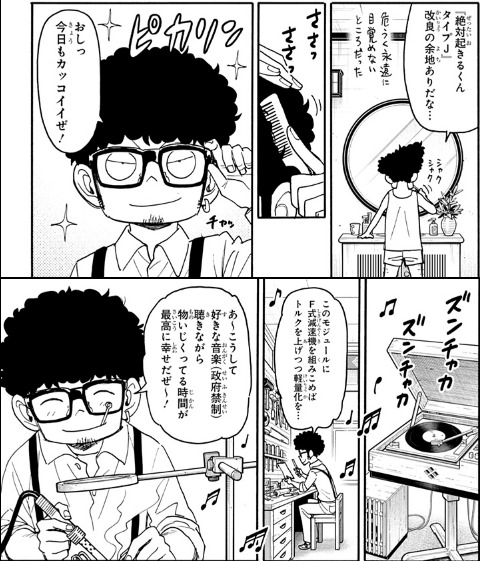
On a day that feels almost ordinary for Franky, we see him waking up in the morning to Japanese karakuri. Interestingly also he starts his morning ritual by enjoying listening to government-banned music. 🎉 🌟 As a well-functioning informant he listens to Fiona Chan's request for a "forged pass for the Podam School of Science. Cool that agent Nightfall(our cute, lovable Kuudere is here) has absolutely recovered after the fight against Mole Wheeler. And he's got the guts to remind her how has wants to be treated :)
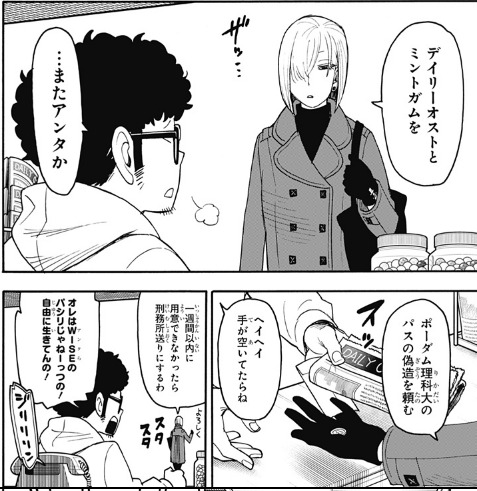
and a man still holding out hope for love. His day starts with babysitting Anya, a task that, for anyone else, would be overwhelming. But for him, it’s just another part of his vigilant life. His relationship with Anya is one of the most endearing parts of his character—he’s her goofy uncle figure, someone who can make her laugh and doesn’t mind stepping up when needed. The man is a solid uncle figure, he makes it where Yuri simply fails. 🎭✨
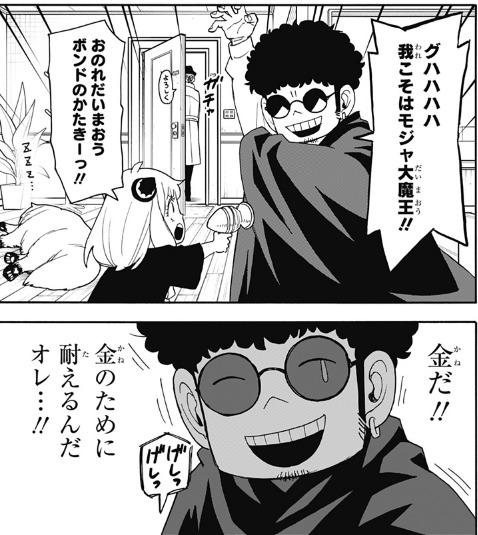
As he takes the fee he goes to invest the money to a bet in horse races, but he's unlucky.
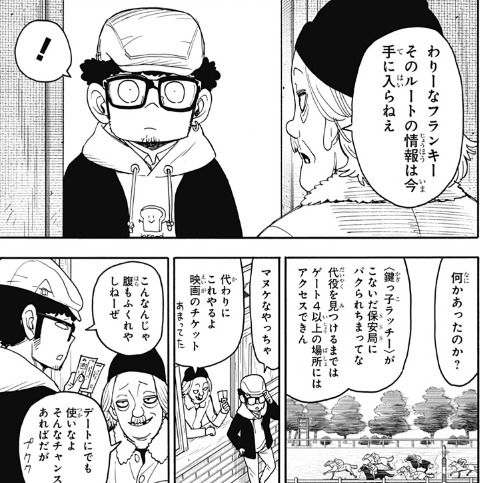
So he's up again to get info about any lucky route. that's when he hears the bad news from the teller. The only informant regarding access to gates 4 and above, Latchkey Lachy(whoever he is) got arrested by the always-feared force throughout Ostania, the SSS! So there's the looming menace of the Secret police.
What’s striking is his relentless optimism—even in the face of constantly changing hideouts and near-constant danger, Franky holds onto the hope that one day, he’ll find love. That's why now he's on a date with a familiar girl, Priscilla, and they'll go to watch a movie.
It’s this mix of resilience and vulnerability that makes him so relatable. He’s a man living in the shadows, often overlooked, but still working to hold onto the idea that there’s more to life than just survival.
Suddenly the news comes: Their teller is arrested "by the you-know-who": The SSS who has him, and Franky has to act quickly to save him.
The way Franky charges in and saves him is Amazing: He steps up prepared, with an effective plan as a real spy, saving the teller from the clutches of the SSS.🕵️♂️🛡️👧
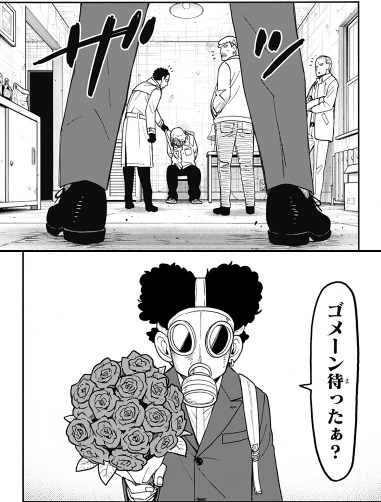
The seeming "flower bouquet" is actually a pistole of smoke gas to make the SSS interrogators lose their focus, briefly and it works!
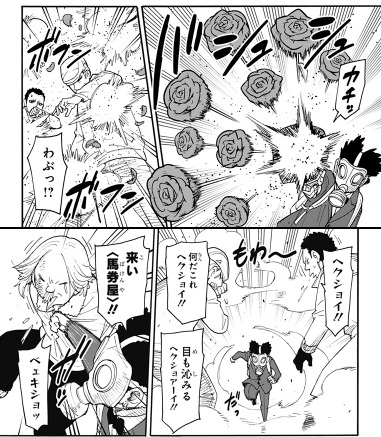
Watch this. How he gives them an awful time:
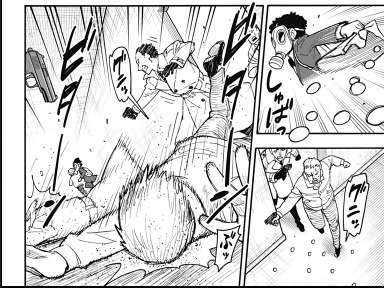
As they see the SSS reinforcements arriving he says: "They're welcome to try. But I'm going to show them just how hard catching rats can be!" With goggles for concealment, he fights them, using a real handgun, he presses a secret button to open a hatch, and they escape with his well big balloon:)!
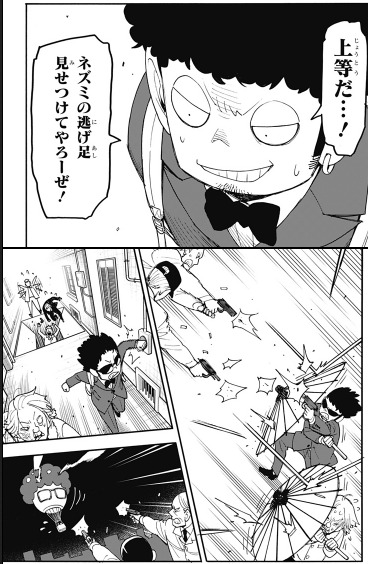
This is Franky at his best—quick and profound thinking, resourceful, and willing to risk everything for the people he cares about. In this moment, we see his true heroism. He may not have the physical strength of Yor, but Franky's improved, worthy peer of Twilight. He’s a man who understands the dangers of the world he’s in, yet continues to put himself on the line.
Then he listens to Priscilla, about how she has found a boy to chaperone to the movies.🤔💔 Despite the disappointment, he calls it a good day.
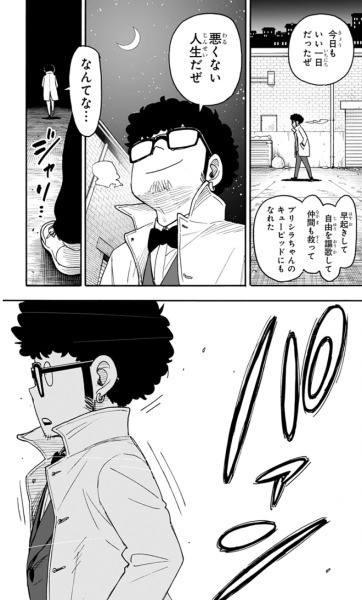
Thus he and the teller go to watch a romance movie:

"How did he get so determined for the rigorous training?" you'll ask me the question.
The failings for finding love didn't get the better of him, so he made up his mind: To become someone as effective as the two people he's looking up to: Twilight and Nightfall.💪🕵️♂️🤔
Franky’s ability to juggle these different aspects of his life—his spy duties, his loyalty to his friends, and his optimism for happiness—makes him one of the most vital characters in Spy x Family. He reminds us that even the seemingly ordinary people in a story filled with super spies and assassins can have profound, heroic moments.
#Spy x Family manga#Anya Forger Spy x Family#Espionage#遠藤 達哉#Endō Tatsuya#Secret Identities#Shōnen Jump+#少年ジャンプ+#アーニャ・フォージャー#WISE Spy x Family#西国情報局対東課#フィオナ・フロスト#Fiona Frost Spy x Family#夜帷#Nightfall Spy x Family#国家保安局#SSS Spy x Family#秘密警察#フランキー・フランクリン#Franky Franklin Spy x Family#黄昏#黄昏アウトフォーカス#Twilight Spy x Family#ロイド・フォージャー#Loid Forger Spy x Family#karakuri
26 notes
·
View notes
Text
《早安!三国打工人》 Good Morning! Workers of the Three Kingdoms, written by 蒿里茫茫
here to shout into the void with a cnovel rec!
The world is boiling, the people are suffering. In truth, Lu Xuanyu didn't quite understand the meaning of those eight words. Ever since she had landed face down in the dirt of the sixth year of the Zhongping era, the fleeting dream she'd once held had scattered like ashes and vanished into thin air. She had a plain face, low EQ, no family background, and a baffling debuff that made everyone mislike her—but it didn't matter that she wasn't treated as the white moonlight of whatever duke or prince. She could work hand and foot, balance the books, butcher hogs, and even had a sword that was enough for her to walk alone in a chaotic world. Her goal was also very simple: a small house, some close friends and neighbors, a room full of food, and a courtyard where she could enjoy the cool breeze at night. So—in the end, just what had gone so wrong for her path to turn entirely in another direction? "I am ready to die here." She held the Black Blade, fully focused as she stood amid the flames, and looked arrogantly at the tide of Danyang soldiers pouring in. "If you want to seize Xuzhou, be ready to do the same."
I have a weakness for the sub-genre of cnovels that's about the main character transmigrating into a historical setting, preferably stories set in an actual historical dynasty (tagged 古色古香) instead of an invented historical setup (tagged 架空历史) or in-universe fictional storyline. And even more specifically, the kind that deals in infrastructure building or military conflict. Conveniently, JJWXC has tags for specific periods, e.g. Qin, Han, Tang, Song, Ming, and Qing dynasties—and of course the Three Kingdoms period, which is how I came across 早安!三国打工人 aka Good Morning! Workers of the Three Kingdoms while on a historical transmigration reading spree, and consequently fell down a very, very, very deep hole orz
Among the stories that I’ve read in this sub-genre, 3K Workers really stands out to me as one of the best (imo!). The MC Lu Xuanyu doesn’t transmigrate into someone native to the Three Kingdoms period, but as her own DnD character with high combat and terribly low charm per the debuff from the summary. 😂 There is no System, only her sentient sword—the Black Blade—that may be as much of a hidden existential poison to her as it is her one “friend” in the beginning. Slowly, she makes an ordinary life for herself in the capital city of Luoyang, with sufficient food and necessities, a decent-paying job, friendly and nosy neighbors, a small home of her own… But none of it can last, because these are the deathbed years of the Eastern Han dynasty according to history—and the people are suffering.
Over the course of more than a decade, from a lone hunter to a butcher, from a handyman to a refugee, from a night watchman to a general—who’s responsible for the lives of many thousands, both soldiers and civilians (the line blurring as ever between them)—Lu Xuanyu never forgets why she decided to step up and fight: to save people. And her struggles in the attempt, both internal and external, comprise the propelling force of the story, as we can see from the author's notes in which they say up front that Lu Xuanyu will join Liu Bei’s team, and then add:
The heroine is an idealist unto death; don’t think about using reality to change her.
(no way!!!! I love her as she is.)
Some things I really like in 3K Workers:
Lu Xuanyu starts out as a true no-name, rather than someone with an established and/or influential family background (b/c lbr that is quite common for this sub-genre). When she appears through an outsider's POV in Ch. 1, she’s been living alone in the wilderness for several months and is a little desperate for some kind of positive human interaction (the low charm debuff does her no favors, which makes the instances people overcome it more notable—it either says something about the impact her behavior has on them, or their ability to disregard inexplicable annoyance). She doesn’t have power or influence to leverage; she doesn’t have the ambition to do something great or world-changing. She simply wants to live a normal life. It’s just unfortunate that “normal” in the 3K period easily leads to death. Her abilities make her abnormal—she is, quite literally, something like an android according to Word of God, a superhuman who’s a wrinkle in the fabric of this timeline’s reality—but she feels and thinks as a 21st century human, with the assumption of a common humanity that makes her a fish out of water.
There's a strong focus on the consequences of war for the common people, and the PTSD that is a simple fact of existence for those exposed to the conflicts; it consistently turns its lens back to look at the farmers, the soldiers, the people who are treated like trampled grass, and shares their perspectives as well. I recall seeing this done in a few other novels, but iirc the framing in those cases was set up more as a way to show people reacting to the changes wrought by the MC, whereas here the framing allows the MC to better understand the attitudes & status quo of the period.
A lot of stories in the sub-genre have the MCs quickly adjusting to the past on the outside and leveraging the power of their position (again, typically based on preexisting family clout) to proactively push for changes, whether it’s to protect themselves or drive swift societal/technological change. In contrast, Lu Xuanyu doesn’t ever truly adapt to the values of the past, is clearly an oddball to others in her behavior and actions, and has enough on her hands with battles without any time or attention to initiate some golden-finger-boosted upheaval of norms. But the ripple effect of her existence is such that other characters, native to the period, are the ones who see clearly what changes they can make and want to make, and pursue those goals of their own accord: reducing the power of the gentry, sharing knowledge more widely, establishing a strong foundation to support better opportunities for women… They come self-motivated to their own enlightenment, which I feel really enriches the story—Lu Xuanyu is the match that lit the fire, but they keep the fire burning. A special shout-out to Lu Bai, who proposes and leads the women-only Jianfu Battalion; her character has some fantastic development throughout the book ♥
I consider this novel very anti-war in attitude—even though we want Lu Xuanyu to win her battles, by the end there’s only bitter weariness rather than delight in victory.
It’s the Three Kingdoms period, so if you like loyalty kink then this naturally caters 300% to that!!!
Ft. great content about battle strategy, tactics, and logistics that makes my inner history geek super happy, and it's combined very effectively with character portrayal and development shown via battle; outside of battle, it gives attention to rebuilding during the rare periods of temporary peace in a historically grounded way.
Plus the tension in the (im)balance of power—there’s the imperial court, the various warlords, appointed officials, aristocratic families—and how the norms of society slowly, slowly start to change...
Despite the subject matter, it is also incredibly funny 😆 Lu Xuanyu's 21st-century-shaped outlook does not jive with period attitudes, and the resulting disconnects in communication are hilarious if you enjoy dry humor; the low EQ squad, ft. founding members Lu Xuanyu and Lü Bu lololol, are an absolute riot, whether they’re interacting with each other or anyone else, and outside their low EQ sphere of immediate influence the story doesn’t shortchange readers on everyday absurdities either, whether it’s the internal squabbling within Yuan Shao’s harem of strategists/advisors or the 3K period take on “lying flat” among certain scholars (paging Zhuge Liang’s uncle…)
The events and historical characters are based on actual historical records rather than fictionalized Romance of the Three Kingdoms, but you don’t have to be knowledgeable about 3K history at all! Lu Xuanyu certainly isn’t! (And if you are, you’ll enjoy all the references to 3K memes & whatnot… actual lol at the “burning of the thatched cottage” in 3K Workers @ 2010 Three Kingdoms drama do you see that!!! do you see what proper plot logic is!!!)
Technically it falls under JJWXC’s m/f category, but I consider this story essentially gen with background UST at most. Lu Xuanyu is very shippable, in the sense that she has lots of interesting relationships with characters in roles ranging from loyal subordinates to tsundere colleagues to ideologically opposed enemies. (And I was pretty satisfied with the endgame ship, though it really isn’t the focus at all during the main story.) She passes as a man for the first ~20% of the cnovel before revealing she’s a woman, and while the f/f potential is limited (alas!), I do love the supporting female characters.
The bad news: … it’s long… and untranslated… /cries/ I want to translate some excerpts as I reread it, but I gotta be realistic—despite my love for this cnovel I just can’t sign myself up rn to translate 2.7 million Chinese characters over 700+ chapters. If you can read Chinese or if you’re ok with reading via mtl, then you can find it at:
JJWXC [how-to guide]
OR here, Ch. 1-601 (Parts 1-5) and Ch. 602-757 (Part 6+extras)
OR you can message me for a formatted ereader-friendly file >_>
Additional links (potential spoilers)—
Reviews on Weibo & Lofter (one) (two) (three)
Review - Peking University Online Literature 2022-23 Biennial List
Interview with the author 蒿里茫茫
Meta re: Lü Bu
Maps of Luoyang; army movements in the years 193, 195, & 199 CE (+zoom in on Puyang); Emperor Xian's journey 195-199 CE
Translated excerpts—
Ch. 13: LXY defending the neighborhood
Ch. 23: Mei-niang invites LXY over
Ch. 66/73: "you cannot retreat, you cannot lose, and you cannot die!"
Ch. 99: funerals for the dead
Ch. 210: Lü Bu's innate taunt skill
Ch. 679/687: the two sides of Sima Yi
Audiobook adaption (in progress)—
Ximalaya homepage
Bilibili playlist (eps 1-1000+, updating)
Youtube playlist (ep. 1-550)
[last updated 1/5/2025]
23 notes
·
View notes
Text










16 notes
·
View notes
Text
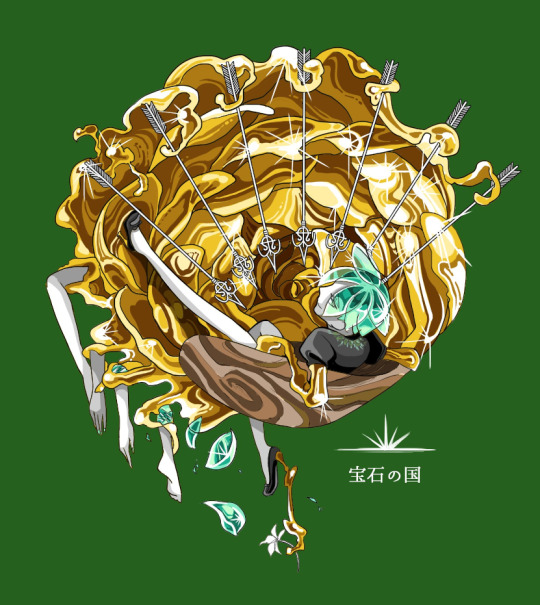

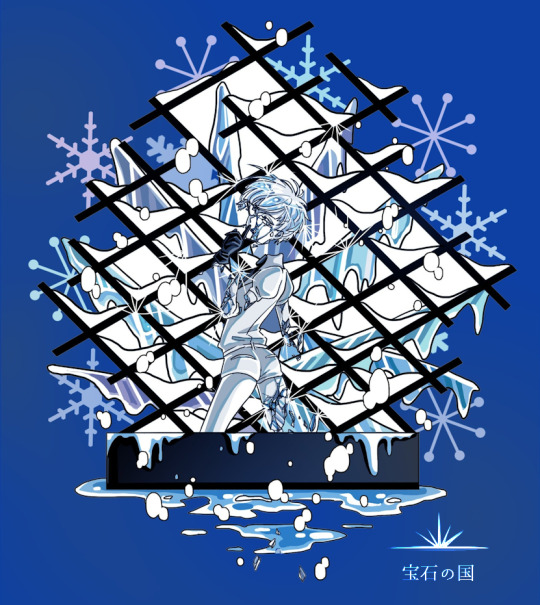



#Phosphophyllite#Antarcticite#Cinnabar#フォスフォフィライト#アンタークチサイト#シンシャ#磷葉石#南極石#硃砂#法斯法非萊特#安特庫琪賽特#辰砂#Land of the Lustrous#Country of jewel#Houseki no Kuni#宝石の国#Special physical team
91 notes
·
View notes
Text
民主主義が形骸化して(あるいは元々)、富の偏在が放置され・進行している国々の世襲富裕層同士が国際的なネットワークを形成して体制(富の偏在)を固定化(促進)していこうとするのは当然の動き
#国際的でかっこいいよね#世襲#死ね#途上国の王族#後進国の独裁者#貧しい国の支配層#衰退国の世襲議員達#権威主義#軍国化に成功(笑)した社会主義国独裁者#神秘主義(笑)#インターナショナル#グローバル#連携#安定#国際交流#世界平和(笑)#友好関係(笑)#仲���く(笑)#伝統(笑)#我々が引っ張るのだ(笑)#リーダーシップ(笑)#先陣を切る(笑)
14 notes
·
View notes
Text
広島城
広島藩浅野家42万石の居城として五重と三重の大小天守群の他に88基もの櫓を持つ日本三大平城の一つであったが、1945年の原爆により倒壊。その後1958年に天守が復元された。

御門橋と平櫓、奥に見えるのが太鼓櫓とそれを繋ぐ多聞櫓
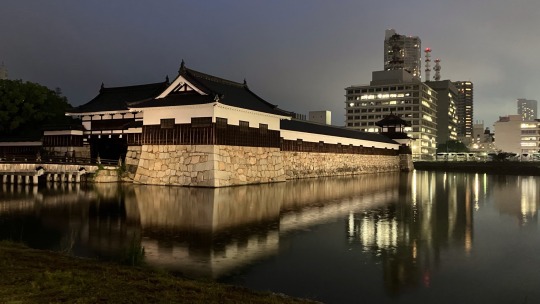
二の丸に入る表御門
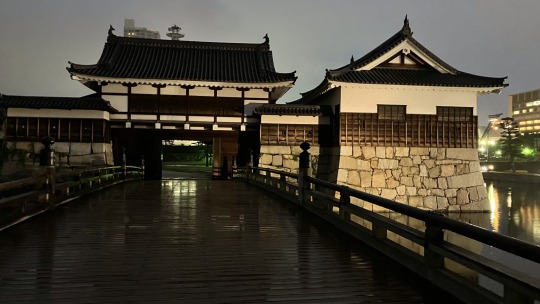
内側からの櫓門と平櫓
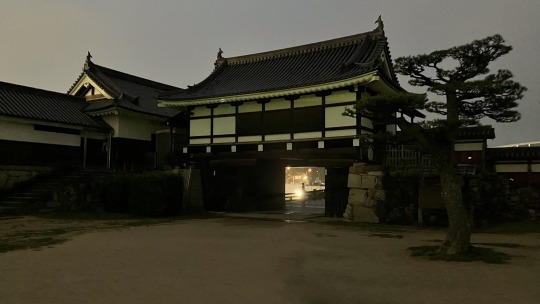
同じく二の丸内側から見た多聞櫓と平櫓

二の丸から本丸に
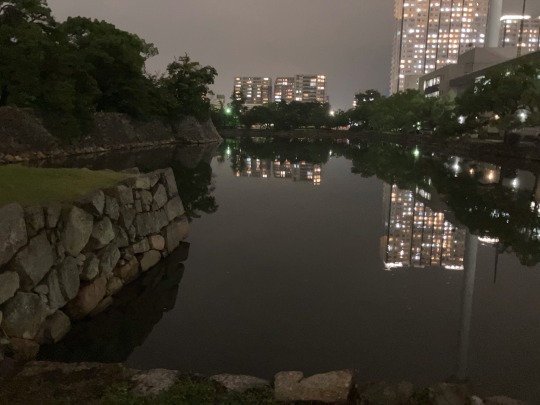

本丸にある護国神社
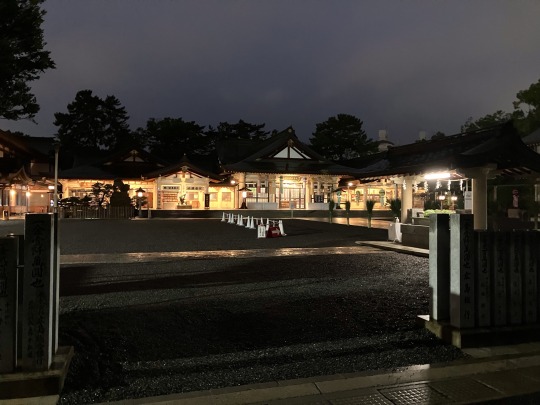
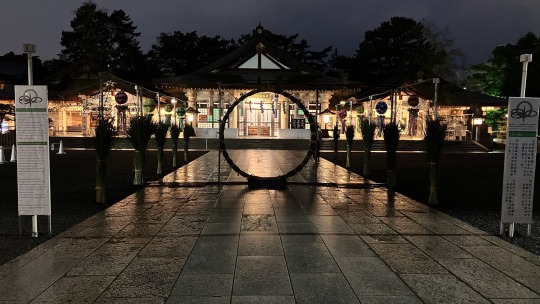
天守が見えてきた
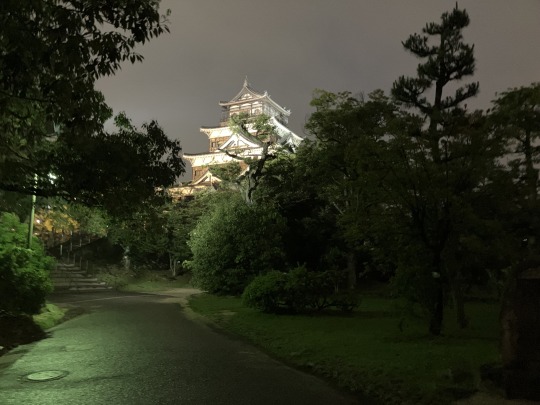
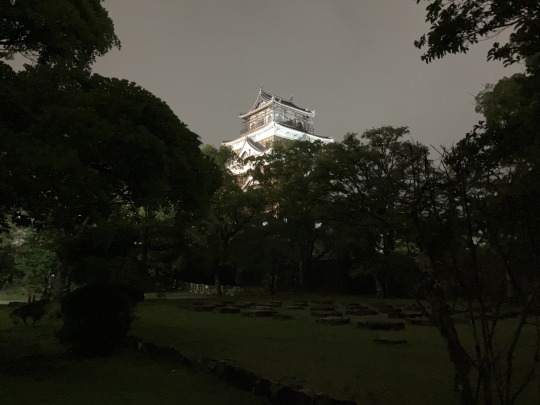
旧天守閣の礎石
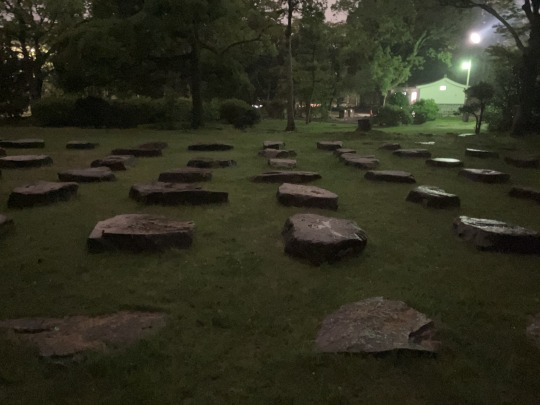
天守閣

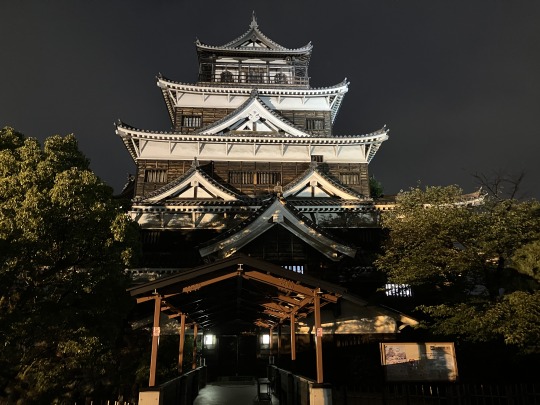
最後は広島といえばの広電


#photographers on tumblr#travel#cool japan#castle#photography#photo#instagood#tour#landscape#バイクで行く景色#日本の城#日本の建物#日本の歴史#history#広島#安芸国#写真#ツーリング
16 notes
·
View notes
Text
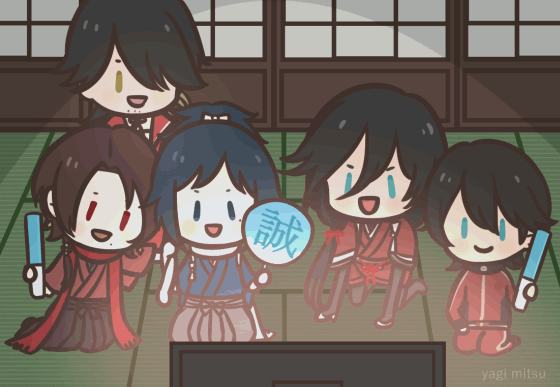
観戦
127 notes
·
View notes
Text


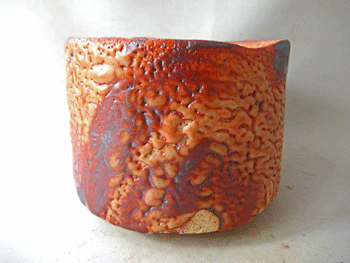
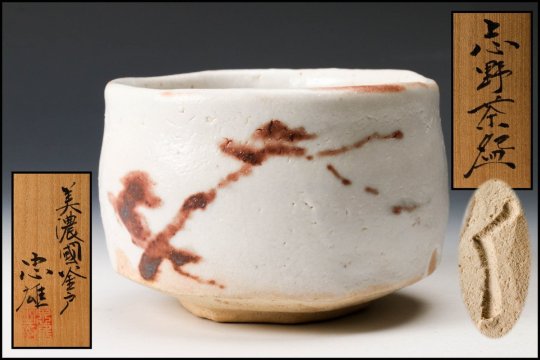

Sean bienvenidos, japonsistasarqueológicos, a una nueva entrega arqueológica, en esta ocasión nos vamos a la ciudad de Kameoka una vez dicho esto, pónganse cómodos que empezamos. - La ciudad de Kameoka, se localiza en la prefectura de Kioto, en la región de Kansai, nos vamos a trasladar a los hornos de Shino que se denominan así oficialmente :Sitios de producción de cerámica de Shino, Kioto alguna vez se llamó provincia de Tanba. A Continuación os pondré imágenes de dichas cerámicas, desde 1976 hasta 1986, con el fin de construir una carretera de peaje llamada Kyoto Jukanmichi, Shinogama fue excavada y supervisada continuamente. - Datan del periodo Nara entre los siglos VIII y IX, dicha área cubre un área amplia, desde la prefectura de Aomori en el norte hasta la prefectura de Miyazaki en el sur, el horno Otani No. 3, que investigó la Universidad de Osaka, también era un horno que producía cerámica vidriada en verde durante ese período. - Espero que os haya gustado y nos vemos en próximas publicaciones que pasen una buena semana. - 日本の考古学者たちよ、ようこそ!今回は亀岡市です。 それでは、ごゆっくりお過ごしください。 - 関西の京都府にある亀岡市、これから移動して、志野窯、正式には志野焼生産地といいます、京都はかつて丹波国と呼ばれていました。この窯元の写真を紹介します。1976年から1986年まで、京都縦貫道という有料道路を作るために、篠窯は発掘され、継続的に監視されました。 - 8世紀から9世紀の奈良時代のもので、北は青森県から南は宮崎県までの広い範囲にあり、大阪大学が研究している大谷3号窯も、その時代に緑釉陶器を生産していた窯である。 - 私はあなたがそれを好きで、将来の記事であなたを参照してください願っています素敵な週を持っています。
Welcome, Japanese archaeologists, to a new archaeological instalment, this time we are going to the city of Kameoka. Having said that, make yourselves comfortable and let's get started.
The city of Kameoka, located in Kyoto prefecture, in the Kansai region, we are going to move to the Shino kilns which are officially called Shino pottery production sites, Kyoto was once called Tanba province. Here are some pictures of these potteries. From 1976 to 1986, in order to build a toll road called Kyoto Jukanmichi, Shinogama was excavated and continuously monitored.
Dating from the Nara period between the 8th and 9th centuries, this area covers a wide area from Aomori prefecture in the north to Miyazaki prefecture in the south, the Otani No. 3 kiln, which was researched by Osaka University, was also a kiln that produced green-glazed pottery during this period.
I hope you liked it and see you in future posts have a nice week.
#日本#歴史#考古学#奈良ペリド#ユネスコ#京都府#関西#丹波国#青森県#宮崎県#大阪大学#大阪#陶磁器#長岡京#平安京#考古遺跡#-#Japan#History#Archaeology#NaraPerid#UNESCO#Kyoto#Kansai#Tanbakuni#Aomori#Miyazaki#photography
77 notes
·
View notes
Text




电报官方频道 https://t.me/hmbb96 电报客服 https://t.me/hmbb69 QQ 2721275796(备用2166887845)全国高端顶级资源 萝莉 御姐 模特 网红 学生 空姐 处女 明星 萝莉 商务陪同 出国旅游 包天包月 主营地区全国一二线城市 三线可空降 靠谱八年老经济,非诚勿扰
#修车#技师#出台#兼职#颜值#正妹#热门#包夜#伴游#包养#走肾#陪玩#北京交友 天津交友 沈阳交友 长春交友 上海交友 南京交友 武汉交友 广州交友 重庆交友 成都交友 西安交友 大连交友 吉林交友 杭州交友 南昌交友 郑州交友 长沙交友 贵阳交友 兰州交友#约炮 交友 美女 北京交友 上海交友 大学生交友 大学生 江苏交友 南京交友 国内交友 浙江交友 摄影 美图 模特 国外交友 女神 一夜情 小视频 北京 上海 浙江 广州 北美交友 华人交友 字母
27 notes
·
View notes
Text
2023年9月5日に開催された「慰安婦問題をめぐる韓日合同シンポジウム」と6日の慰安婦像傍の街頭集会は、日韓の真実勢力がソウルに結集して声を挙げる記念すべきイベントとなりました。
シンポジウムが行われたコリア・プレスセンターでは、横断幕に日の丸が、開会時には君が代が斉唱されました。近年プレスセンターでこういったことは有り得なかったそうです。
また、6日の街頭活動は、正義連(旧・挺対協)水曜デモよりもさらに慰安婦像の近くで、正義連より参加者が多く賑やかに行われました。
2019年12月金柄憲氏、李宇衍氏らが、同じ場所で慰安婦像撤去の街頭活動を始めたときは小さな日の丸を持っていただけで、罵倒され妨害にあったそうです。
この日は青空をバックに大きな韓国旗と日章旗が翻り、参加者は韓日の小旗を振って声を挙げました。
<シンポジウム資料>
当日配布されたプログラム・資料冊子(韓国語・日本語併記)
http://nadesiko-action.org/wp-content/uploads/2023/09/2023.9.5_symposium_siryo.pdf
シンポジウム パワーポイントPDF
・第一部
http://nadesiko-action.org/wp-content/uploads/2023/09/1.pdf
・第二部
http://nadesiko-action.org/wp-content/uploads/2023/09/2.pdf
西岡力 (麗澤大学特任教授)発表原稿
・日本語版
http://nadesiko-action.org/wp-content/uploads/2023/09/2023.9.5_symposium_nishioka_jp.pdf
・韓国語版
http://nadesiko-action.org/wp-content/uploads/2023/09/2023.9.5_symposium_nishioka_kr.pdf
************************************************************************
<日韓真実勢力 共同声明>
【 PDF版 】
2023年9月6日 ソウル
日韓真実勢力一同
2023년 9월 6일
한일��실세력 일동
慰安婦問題のウソと戦う日韓真実勢力共同声明
위안부 문제의 거짓말과 싸우는 한일 진실 세력 공동 성명
慰安婦は日本軍が管理した公娼だった。貧困のために両親が受け取った前渡し金を返済するために売春に従事した女性たちだった。その時代を生きた日本人、韓国人はそのことをよく知っていた。
위안부는 일본군이 관리한 공창이었다. 빈곤 때문에 부모님이 받은 전차금을 상환하기 위해 매춘에 종사한 여성들이었다. 그 시대를 살았던 한국인, 일본인은 그것을 잘 알고 있었다.
南労党出身の在日朝鮮人共産主義者はこう語っていた。「故郷の済州島の村では早く夫を亡くした未亡人が村の若い娘を連れて中国で慰安所を経営し、大変カネを儲けた。そこで、村人たちはこぞって家の娘も慰安所で働かせて欲しいとその女性に頼み、多数が金儲けのために慰安婦になっていた」
남노당 출신인 재일조선인 공산주의자는 이렇게 말했다. “나의 고향 제주도 마을에서는 일찍이 남편을 잃은 과부가 마을의 젊은 여성들을 데리고 중국으로 건너가 위안소를 운영해 많은 돈을 벌었다. 그래서 마을 사람들은 모두 자기 집안의 딸도 위안소에서 일하게 해달라고 그 여자에게 부탁했고, 다수가 돈벌이를 위해 위안부가 되었다.”
だから、反日政策を進めた李承晩政権も日本との国交正常化交渉で慰安婦への補償は求めていない。
그래서 반일정책을 추진한 이승만 정권도 일본과의 국교정상화협상에서 위안부에 대한 보상은 요구하지 않았다.
私たちは昨年に東京で、そして昨日ソウルで「慰安婦問題をめぐる日韓合同シンポジウム」を開催して、以上のような歴史的真実を確認した。
우리는 지난해 도쿄에서 그리고 어제 서울에서 ‘위안부 문제를 둘러싼 한일합동 심포지엄’을 개최해 이상과 같은 역사적 진실을 확인했다.
ではなぜ、慰安婦は公娼ではなく、日本軍に強制連行され、性的奉仕を強要された性奴隷だという、ウソが拡散し、日韓関係を悪化させてきたのか。
그렇다면 왜 위안부는 공창이 아니라 일본군에 강제 연행되어 성적 봉사를 강요받은 성노예라는 거짓말이 확산되어 한일관계를 악화시켜 왔는가.
その元凶は、強制連行、性奴隷説を広めていった日本と韓国の嘘つき勢力だ。日本の朝日新聞が職業的嘘つきである吉田清治の強制連行ウソ証言を繰り返し大きく報道した。日本人活動家が韓国で元慰安婦らを探し、日本政府を訴える裁判を起こした。原告の元慰安婦は強制連行されたとは言っていなかったのに、その証言を捏造したのも朝日だ。
그 원흉은 강제연행, 성노예설을 퍼뜨려 나간 한국과 일본의 거짓말 세력이다. 일본의 아사히신문이 직업적 거짓말쟁이인 요시다 세이지의 강제연행 허위증언을 반복적으로 크게 보도했다. 일본인 활동가가 한국에서 전위안부들을 찾아다니며 일본 정부를 상대로 재판을 일으켰다. 원고인 전위안부들는 강제연행되었다고는 말하지 않았는데, 그들의 증언을 날조한 것도 아사히 신문이다.
そして挺対協と遺族会という韓国の二大反日団体が日本発のこのウソを韓国で大々的にひろめた。それを韓国の新聞、テレビが第二の独立運動であるかのように大きく報じた。そして見逃せないのは日韓の嘘つき勢力が北朝鮮と緊密な連携をとっていたことだ。今回、正義連の元理事長の国会議員と現理事長が東京で北朝鮮の手先である朝総連の行事に出たことがそのことを象徴している。
그리고 정대협과 유족회라는 한국의 양대 반일단체가 일본발의 이 거짓말을 한국에서 대대적으로 확산시켰다. 그것을 한국의 신문, TV가 제2의 독립운동인 것처럼 크게 보도했다. 그리고 놓칠 수 없는 것은 한일의 거짓말 세력이 북한과 긴밀한 연계를 취하고 있었다는 것이다. 최근에 정의연의 전 이사장이자 국회의원인 유미향과 현 정의연 이사장인 이나영이 도쿄에서 북한의 앞잡이인 조총련의 행사에 참석한 것이 이를 상징하고 있다.
ところが、日本と韓国の真実勢力は民族感情などのためなかなか協力することが出来なかった。日本では30年間、真実勢力が戦いを続け、朝日が吉田証言をウソだと認めて過去の記事を取り消すところまでいたった。韓国でも、2019年からここ、慰安婦像のすぐ横で「慰安婦は売春婦」「慰安婦像撤去」を叫ぶ韓国の真実勢力が反撃を開始した。そしてついに昨年と今年、東京とソウルで日韓の真実勢力が合同シンポジウムを開催することが出来た。
그런데 한국과 일본의 진실세력은 민족감정 등을 이유로 좀처럼 협력할 수 없었다. 일본에서는 지난 30년간 진실세력이 싸움을 이어가, 아사히 신문이 요시다 세이지의 증언을 거짓말이라고 인정해 과거의 기사를 철회하기까지 이르렀다. 한국에서도 2019년부터 이곳 위안부상 바로 옆에서 ‘위안부는 매춘부’, ‘위안부상 철거’를 외치는 한국의 진실세력이 반격을 시작했다. 그리고 마침내 지난해와 올해 도쿄와 서울에서 한일의 진실세력이 합동 심포지엄을 개최하기에 이르렀다.
ここで私たちは宣言する。日韓の真実勢力が力を合わせて、日本、韓国、北朝鮮の嘘つき勢力の陰謀と工作を暴露し、彼ら、彼女らの責任を追求する。韓国と全世界に立てられたウソの象徴である慰安婦像を必ず撤去させる。
여기서 우리는 선언한다. 한일의 진실세력이 힘을 합쳐 일본, 한국, 북한의 거짓말 세력의 음모와 공작을 폭로하고, 그들의 책임을 계속해서 추구할 것이다. 한국과 전 세계에 세워진 거짓말의 상징인 위안부상을 반드시 철거시킬 것이다.
以上
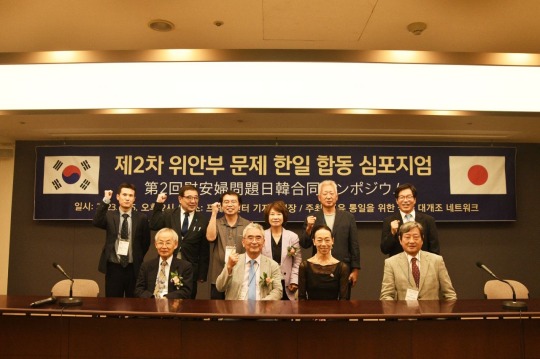
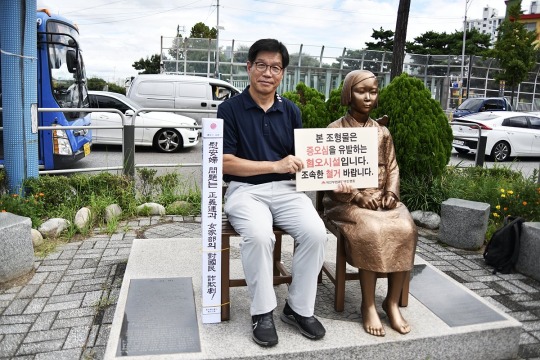
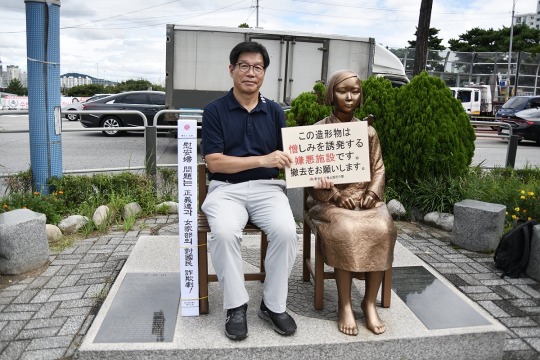
56 notes
·
View notes



